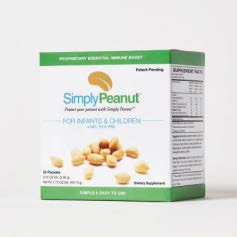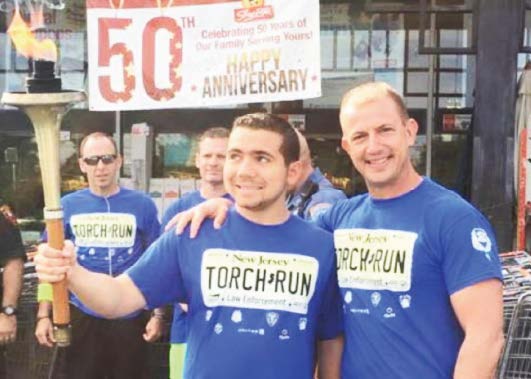AUTHOR TO DONATE 100% OF SEPTEMBER BOOK SALES FOR HURRICANE HARVEY
Wanny Huynh knows what it is like to bounce back from adversity. He was just eight years old when his parents fled Vietnam via Cambodia on foot with bullets whizzing over their heads 34 years ago. At one checkpoint after his mother ran out of valuables with which to bribe the soldiers, Wanny and his 10-yearold brother were taken from the family. Left on their own with only the clothes on their backs they were eventually given shelter by a soldier whose wife used them as slaves. After being reunited with his family two months later, Wanny spent time in a refugee camp before entering the second grade in the U.S. knowing almost no English.

As a first generation immigrant, a survivor, a motivational speaker and author of four books, Wanny wants to offer hope and comfort to the survivors of Hurricane Harvey who, as he once did, may be wondering how they could possibly put their lives back together. That is why during the month of September he is donating all proceeds from his latest book, HOPE: The Path to Happiness, Opportunity, Prosperity and Enjoyment to the Red Cross. The book can be purchased at At 42, Wanny Huynh has led a remarkable life that required him to become a master at adaptation. He came to America as a young child knowing little English after fleeing war torn Vietnam and Cambodia. As an adult he overcame homelessness and poverty to become an inspirational speaker and author of four self-help books including How to Overcome Anything, The Five Laws to Wealth, Success and Happiness, and Procrastination to Finisher.•
Protecting Your Children from Peanut Allergies
A common question among new parents is "How can I protect my baby from getting food allergies." This is a well-founded question considering that the Food Allergy Research and Education (FARE) association (foodallergy.org/facts-and-stats) reports approximately 15 million people in the United States have food allergies. Close to 6 million of these individuals are children. As such, food allergies have become a major public health issue in the past decade with a 50% increase in hospital visits for anaphylaxis, a severe reaction to an allergen such as eggs or peanuts. More specifically childhood hospitalizations for serious reactions to food allergies have tripled.

NUTTY STUDY: Frequent consumption of peanut protein starting at 4-11 months of age is extremely effective in preventing a peanut allergy.
Allergic reactions, including life-threatening anaphylactic shock occur because the body's immune system reacts inappropriately to an allergen that the body incorrectly perceives as a threat. The most common food allergies are peanut, soy, cow's milk, egg, wheat, seafood, fish and tree nuts. Among these, peanut and egg allergies are the most common in infants and toddlers. While some children will outgrow some food allergies, peanut allergies are unfortunately often lifelong.
THE STUDY: The good news is parents finally have an answer to their question about how to best prevent peanut allergies in the LEAP study (Learning Early About Peanut allergy leapstudy.com). This was a clinical trial that looked at children who were considered to be at high risk of developing a peanut allergy. Half of the children were introduced to peanut proteins early (4-11 months of age) and frequently (3x/week). The other half completely avoided peanut products.
THE RESULTS: Children who avoided peanut containing foods had a much higher incidence of having a peanut allergy compared to children who had consistently and frequently consumed peanut products from a young age. Put simply, the LEAP study demonstrated that even in highrisk infants, frequent consumption of peanut protein starting at 4-11 months of age is extremely effective in preventing the development of a peanut allergy.
THE NEW GUIDELINES: The National Institute of Allergy and Infectious Diseases (NIAID) has published new guidelines to help pediatricians and parents know how and when to safely introduce infants to peanuts. THE NEW GUIDELINES: The National Institute of Allergy and Infectious Diseases (NIAID) has published new guidelines to help pediatricians and parents know how and when to safely introduce infants to peanuts. Group 1: Infants with severe eczema, egg allergy or both. These infants have the highest risk of developing a peanut allergy and should be evaluated by a physician prior to peanut introduction. If deemed safe peanut introduction is then recommended at 4-6 months of age.
THE NEW GUIDELINES: The National Institute of Allergy and Infectious Diseases (NIAID) has published new guidelines to help pediatricians and parents know how and when to safely introduce infants to peanuts.
THE NEW GUIDELINES: The National Institute of Allergy and Infectious Diseases (NIAID) has published new guidelines to help pediatricians and parents know how and when to safely introduce infants to peanuts.
Group 2: Infants with mild to moderate eczema. It is not required that these infants be evaluated by a physician prior to peanut introduction. They should be introduced to age appropriate peanut containing foods around 6 months of age. Some parents and or medical providers of infants in this group may request an in office visit to supervise peanut introduction.

Simply Peanut, developed under the direction of Pediatricians and Allergists, contains a combination of organic peanut flour and vitamins for an immune boost while safely introducing peanuts. Parents may start their infant on Simply Peanut at 4 months of age and give it 3 times a week.
Group 3: Infants with no signs of eczema or any food allergy. These infants should be introduced to age appropriate peanut containing foods and in accordance with family preferences and cultural practices. Two points of attention: One, if your infant Simply Peanut, developed under the direction of Pediatricians and Allergists, contains a combination of organic peanut flour and vitamins for an immune boost while safely introducing peanuts. Parents may start their infant on Simply Peanut at 4 months of age and give it 3 times a week. allergy or both. These infants have the highest risk of developing a peanut allergy and should be evaluated by a physician prior to peanut introduction. If deemed safe peanut introduction is then develops concerning symptoms after introducing peanut containing foods, parents need to contact their health care provider for evaluation of a possible peanut allergy. Secondly, the NIAID guidelines address prevention of peanut allergy and are not to be applied by anyone with a known peanut allergy. The guidelines are not a treatment recommendation. The key takeaway for parents from the LEAP study and the new NIAID guidelines is early introduction and frequent administration of peanuts to infants, and not the traditionally recommended avoidance.
WHAT CAN PARENTS DO? So how do you safely introduce peanuts to a baby at 4 to 6 months of age? Whole peanuts, peanut butter, and peanut snacks are all choking hazards. Additionally, peanut butter is often packed with salt, sugar, and cornstarch. An option available is a product called Simply Peanut.™ Learn more at simply-peanut.com
NJ TEEN AWARDED $36K FOR LAUNCHING COMIC BOOK SERIES FOR SIBLINGS OF INDIVIDUALS WITH SPECIAL NEEDS
Last August, Julie Averbach from Short Hills, NJ was awarded $36,000 by the Helen Diller Family Foundation in recognition of her commitment to tikkun olam (repair the world). At a luncheon at San Francisco's Four Seasons Hotel Julie, along with 14 other young leaders from across the nation, received the national 2017 Diller Teen Tikkun Olam Award (diller- teenawards.org), a prestigious honor given to youth leaders who have demonstrated exceptional leadership, community service and action.
Julie was selected for this award among hundreds of teens because of her work on Adventures from My World (adventuresfrommyworld.com), a comic book series that spotlights the unique challenges and joys that siblings of special needs individuals encounter daily. Her project has globally expanded to help families across the world understand their family member's disability in a fun and creative way, and she plans on utilizing the $36,000 and the connections she made with the other teens and previous award winners at the luncheon to continue growing her project. The luncheon celebration was the culmination of a weekend-long series of business strategy workshops, networking and mentoring initiatives, during which award winners exchanged ideas with other socially conscious peers and interacted with Diller Teen Tikkun Olam Award alumni from years past who are continuing their social justice work.

COMIC BOOK HERO: Julie Averbach's comic reassures siblings that they are not alone and empowers individuals to express their emotions more openly.
A highlight of the luncheon was the debut of a special documentary-style video that featured the accomplishments of all 15 teens in a behind-thescenes chronicle of their leadership achievements. The video showcases each teen's projects and illustrates an individual's ability to affect global change through leadership and community and service, and inspires hope for viable solutions to even the world's toughest problems. View the video at dropbox.com/s/17blrd5f5eoxf1j/Diller2017 Final.mp4?dl=0

KEEPERS OF THE FLAME: North Caldwell Police Chief Mark Duer (right) President of the Essex County Chiefs of Police Association who ran the North Caldwell to Little Falls leg, with his longtime friend and Special Olympian Michael John Sabato (left) .
The 2017 Law Enforcement Torch Run took place on Friday, June 9th as more than 3,000 officers took to the streets of their local communities on one of 26 separate routes to help carry the "Flame of Hope" to the Special Olympics New Jersey Summer Games. The culmination of the run was the lighting of the Special Olympics New Jersey cauldron at the Opening Ceremony to officially open the event featuring more than 2,500 Special Olympics athletes.•